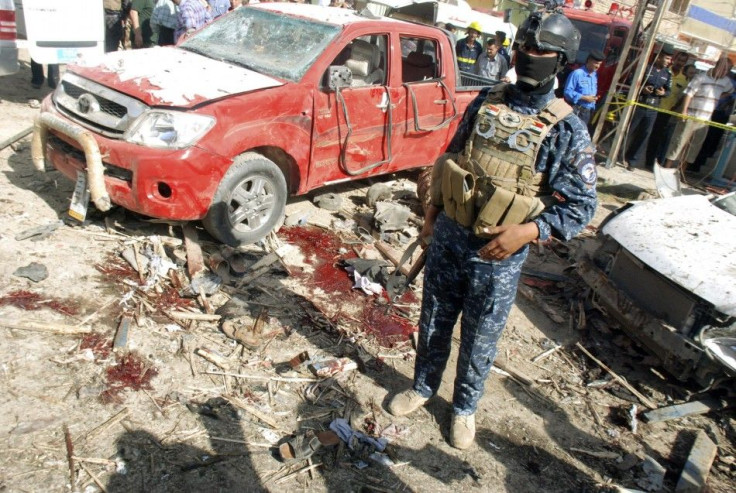Iraq Faces Wave of Attacks; 75 Killed

A wave of coordinated bombings across Iraq on Monday left at least 74 people dead while wounded 250 others. Explosives were detonated in 17 places, and there were reports of insurgent gunfire in many areas of the country.
The violence was mainly directed at security forces, although a number of civilians were killed. The deadliest incident occurred in the city of Kut, where 42 people died after two roadside bombs exploded. Militants detonated the first explosive early Monday, then blew a second car bomb when police and civilians gathered around the site of the first blast.
"Once again, murderers and criminals have carried out attacks against innocent civilians to add a new page to their black criminal record," Iraqi Prime Minister Nuri al-Maliki said in a statement.
The attacks, which happened half-way through the holy month of Ramadan, are being blamed on rebel group Islamic State of Iraq, a Sunni Muslim terrorist organization with suspected links to al Qaeda.
Six bombs went off in Baghdad, killing three people. Explosions also occurred in Baquba, Tikrit and Kirkuk, and in the cities of Kerbala and Najaf 11 security officers and civilians were killed by car bombs.
The United States has been pushing Iraqi leaders to allow American troops to stay in the country after the scheduled troop departure on Dec. 31. Iraqi President Jalal Talabani and senior officials agreed earlier this month to talk to U.S. military personnel about the idea, but many politicians in Iraq are still reluctant to let U.S. troops stay in their country any longer.
The conversation between Iraq and the United States has been going on for months, as American officials fear that their security efforts could come undone once troops are sent home. The blasts Monday are an indication that al Qaeda is stronger in the country than previously expected.
There are currently 48,000 U.S. troops in Iraq. In July, 178 people were killed in the country, where there is on average more than 10 attacks a day, although on a significantly lower scale than the Monday bombings. In June, 342 people were killed.
© Copyright IBTimes 2025. All rights reserved.




















